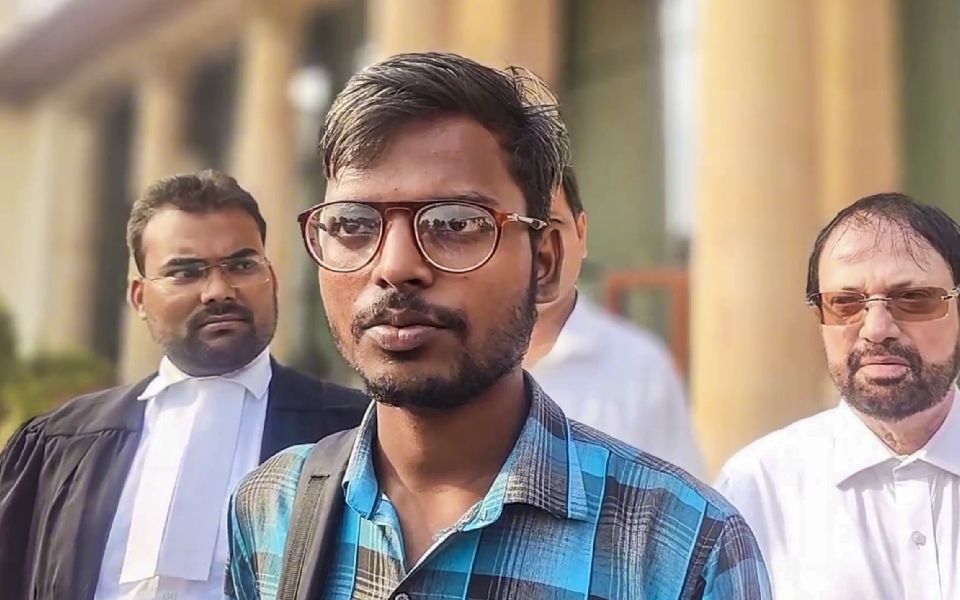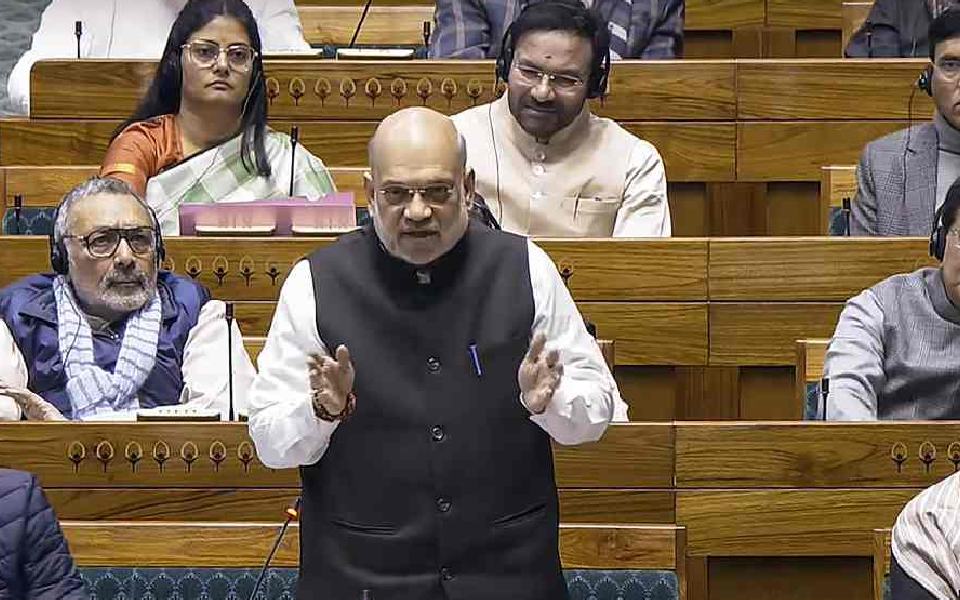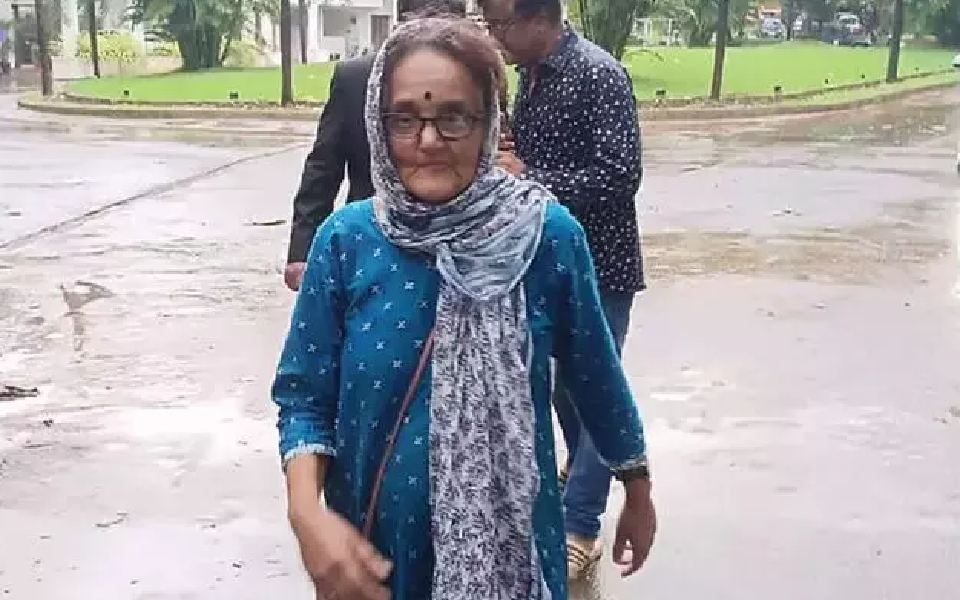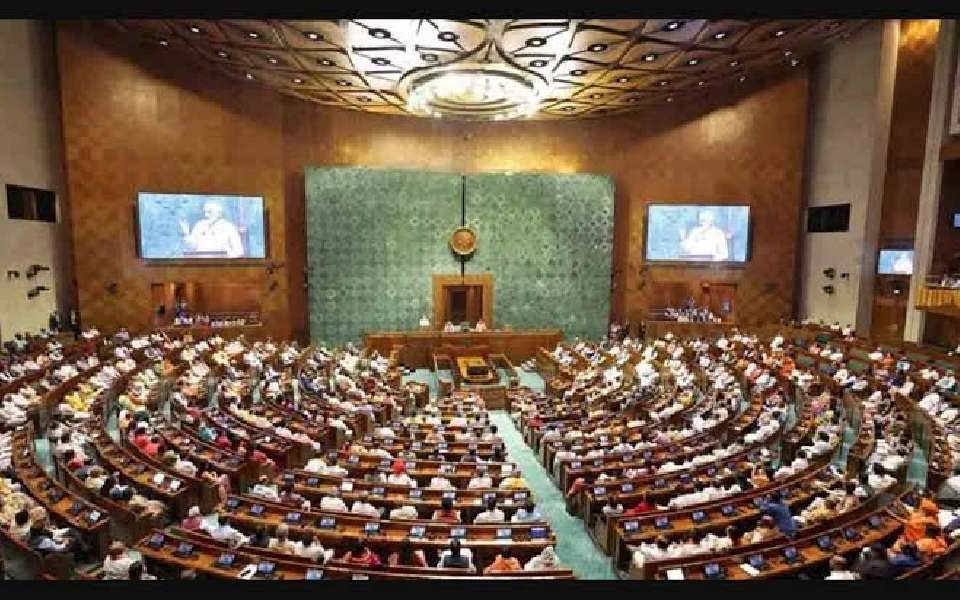New Delhi, Sep 30: The Supreme Court on Monday came to the rescue of a Dalit youth, who lost his hard-earned IIT Dhanbad seat after missing the deadline to deposit Rs 17,500 admission fees by few minutes, by asking the institute to admit him in the same batch of the BTech course.
Observing that “a talented student like the petitioner should not be left in the lurch”, a bench headed by Chief Justice D Y Chandrachud kept its promise to help the youth and took recourse of Article 142 of the Constitution to order the IIT Dhanbad to grant Atul Kumar (18) the admission in the Electrical Engineering course.
On September 25, the bench, also comprising justices JB Pardiwala and Manoj Misra had assured him of all possible help after he claimed that on June 24 he missed the 5 pm deadline of deposit admission fees to block a seat by 15 minutes.
"We cannot allow such a young talented boy to go away," the CJI said at the outset and was irked over the objections raised by the institute.
The counsel for IIT Seat Allocation Authority said the login details of the candidate that he was logged in at 3 pm which proved that it was not a last-minute log-in as claimed.
The counsel said that repeated reminders through SMS and WhatsApp were also sent to the candidate.
"Why are you opposing so much? You should see if something could be done," the bench said, adding that here is a son of a daily wager who belongs to a marginalised section of the society and a BPL (below poverty line) family.
There is no conceivable reason why the petitioner would not have paid the amount if he had the wherewithal to pay the Rs 17,500 fee, the bench said, adding, "The only thing that stopped him was the inability to pay and as the Supreme Court of India we need to see that."
The bench said the court has to take into account the social and economic background of the youth.
"We are affirmatively of the view that a talented student like the petitioner should not be left in the lurch. The power of the Court under Article 142 of the Constitution to do complete justice is to address such situations," it said and directed, "The petitioner should be admitted to the same batch in which he would have been admitted and should be given all consequential benefits such as hostel admission".
The youth was standing in the packed courtroom with folded hands and the CJI wished him good luck for the future.
“All the best! Acha kariye! (do well)" the CJI said and asked him about his siblings who are also pursuing engineering in other colleges.
At the outset, the bench referred to his ordeal and said he first went to the legal services authority of the Jharkhand High Court which asked him to go to Chennai to approach the legal services authority there as the Madras IIT held the entrance exam this year.
Then the Madras High Court asked him to move the top court, the bench said.
"Here is a Dalit boy who is being made to run from pillar to post," the CJI said, adding, "he does all the hard work to get into the IIT. If he had Rs 17,500 why will he not pay".
Article 142 of the Constitution gives extraordinary power to the top court to pass orders and decrees to ensure "complete justice" in any case before it and these orders are enforceable throughout the country.
Earlier, Kumar had said that his parents failed to deposit the fees and had approached various authorities, including the National Commission for Scheduled Castes, Jharkhand Legal Services Authority and the Madras high court, to save the hard-earned seat.
His counsel had told the bench that Kumar cleared the JEE Advanced in his second and last attempt and if the top court does not come to his rescue he would not be able to take another shot at the test.
After very brief arguments, the bench had issued notices to the Joint Seat Allocation Authority, IIT Admissions, IIT Madras, which conducted the test this year.
The lawyer had referred to the financial condition of the family of the youth.
It was a very tough task for the students to arrange Rs 17,500 by 5 pm of June 24, that too in just four days after allotment of the seat in IIT Dhanbad, the lawyer said.
Kumar, son of a daily wager, hails from a BPL family living at Titora village in Muzaffarnagar district of Uttar Pradesh.
Let the Truth be known. If you read VB and like VB, please be a VB Supporter and Help us deliver the Truth to one and all.
New Delhi, Aug 5 (PTI): As many as 125 out of total 6,291 Primary Agricultural Credit Societies (PACS) in Karnataka are under liquidation, Cooperation Minister Amit Shah informed Parliament on Tuesday.
Out of 125 PACS, 28 cooperatives are located in Chikkaballapura, followed by 13 in Hassan and 12 in Belagavi, as per the data placed before the Lok Sabha.
According to Shah, there are a total 6,291 PACS in Karnataka, out of which 64 are non-functional/dormant at present, while 125 are under liquidation.
In the last five years, 428 new PACS were registered in the state with the highest 187 in Belagavi, he said in a written reply to the Lower House.
At an all-India level, 4,964 PACS were registered in 2024-25 fiscal across the country.
The minister said National Cooperative Development Corporation (NCDC) disbursed Rs 25.56 crore to PACS in Karnataka in five years till 2024-25.
Under a pilot project to construct a grain storage unit, the minister said a 1,000-tonne godown with a processing unit has been constructed at Primary Agriculture Cooperative Federation, Ekamba, Bidar in Karnataka.
For computerisation of PACS, the minister said of the 6,582 PACS sanctioned in Karnataka, hardware has been delivered to 5,491 PACS, 3,765 cooperatives have been onboarded onto the ERP system, 1,930 cooperatives are live on Enterprise Resource Planning (ERP) and 1,728 have completed by-end operations.
The Centre has released Rs 55.64 crore to Karnataka under the computerisation project, he added.





